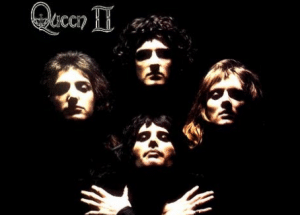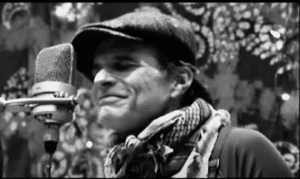Why Chuck Berry’s Publisher Needed To Sue John Lennon

Chuck Berry live at Belgium, 1965 - BenBop1965 / Youtube
Have you ever tried to play a riff that just screams rock and roll? Chances are, you ended up channeling a bit of Chuck Berry. A pioneer of the genre, Berry’s music was as infectious as it was innovative.
His signature guitar work became the blueprint for countless aspiring rockers, leaving a lasting impact that continues to resonate today.
But influence can sometimes get a little too close for comfort. While countless musicians drew inspiration from Berry, one particular case blurred the lines between homage and copy.
John Lennon, known for his songwriting prowess during his time in The Beatles, found himself in the crosshairs of a legal battle due to a song that bore a striking resemblance to a Berry classic.
A twist on a classic that gave birth to a bigger classic
The Beatles’ “Come Together” is a familiar friend to any fan. Its jaunty melody and slightly offbeat vibe have cemented its place as a Fab Four classic.
But for Chuck Berry’s team, the song held an uncomfortable resemblance to something they already knew.
The similarities between “Come Together” and Berry’s “You Can’t Catch Me” were hard to ignore. Both tracks share the distinct line “Here come old flat-top”, and the overall feel of the Beatles’ song echoed Berry’s signature sound.
These comparisons proved strong enough to land John Lennon in court with the publisher of “You Can’t Catch Me.” The lawsuit ultimately led to an out-of-court settlement, casting a shadow over one of the Beatles’ most beloved tunes.
Macca tried calling out John
Paul McCartney didn’t shy away from addressing the similarities between “Come Together” and Chuck Berry’s “You Can’t Catch Me”. In a past interview, McCartney revealed a lighthearted exchange between him and John Lennon about the song’s origins.
“John basically brought in a Chuck Berry song,” McCartney said. He then quoted the opening line of “You Can’t Catch Me” for reference, highlighting the clear connection. McCartney even recounted his attempt to steer Lennon away from such a direct homage, but Lennon’s playful response suggested he wasn’t too concerned.
Despite the initial hesitation, the song went through some alterations, including a change in tempo and the addition of a distinct bass line. These adjustments likely helped shape “Come Together” into the unique Beatles anthem it is today.
Legal wranglings over “Come Together”
This problem still bit Lennon in the ass in late 1969 when Big Seven Music, publisher of Chuck Berry’s “You Can’t Catch Me”, accused him of copyright infringement. Similarities were undeniable, with both songs featuring the lyric “Here come ol’ flattop” and a similar overall vibe.
Before recording, Lennon and McCartney had slowed down the song and added a heavy bass line, hoping to distance it from Berry’s original. However, the lawsuit loomed. The case was settled out of court in 1973 with a peculiar agreement. Lennon would record three Big Seven songs to compensate, a decision that would lead to further legal battles.
Lennon only included a brief version of one song, “Ya Ya”, on his 1974 album. Two others, “You Can’t Catch Me” and another “Ya Ya” version, appeared on his 1975 album. A third song, “Angel Baby”, remained unreleased until after Lennon’s death.
This complex back-and-forth of lawsuits and settlements added a surprising chapter to the story of “Come Together”. Listen to the two songs below:













